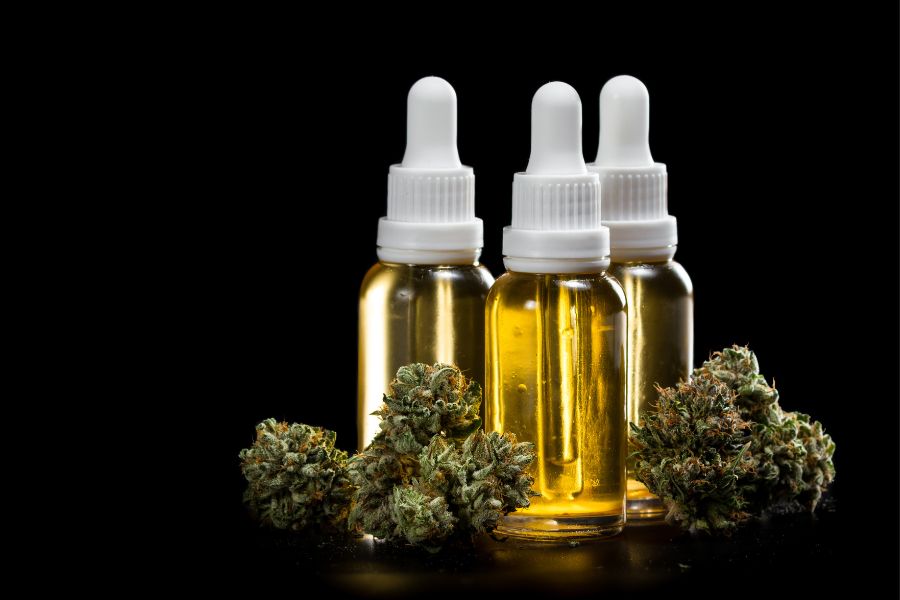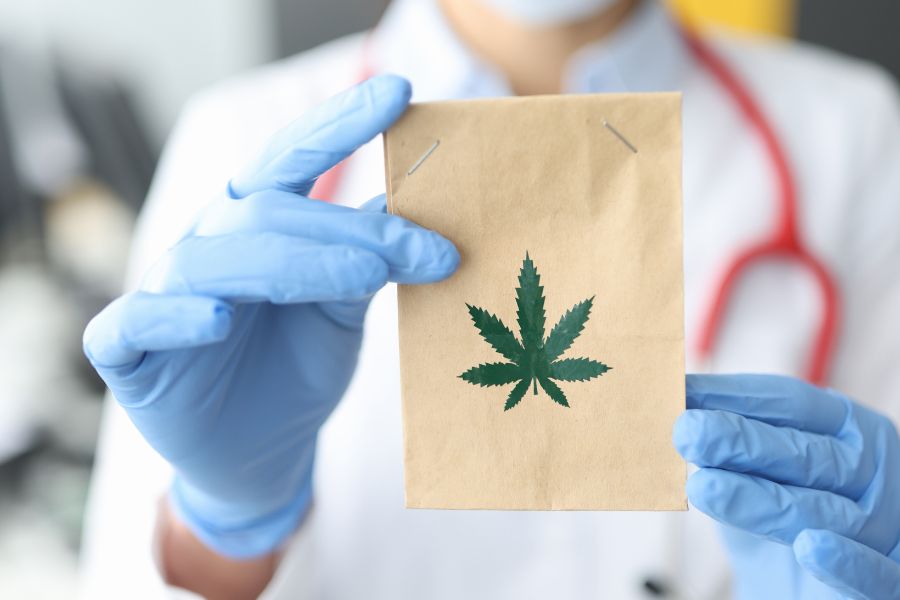CBD (Cannabidiol), a non-intoxicating cannabinoid derived from the cannabis plant, has witnessed a surge in popularity in recent years due to its potential health benefits.
However, access to CBD can be an uphill battle for many individuals, especially those grappling with financial constraints or other barriers.
In response to this issue, CBD assistance programs have emerged with the noble objective of providing relief and facilitating access to CBD products for those in need. These programs serve as a lifeline for vulnerable populations, including low-income individuals, veterans, disabled individuals, and others who may otherwise find it challenging to afford CBD products.
Unlike its psychoactive counterpart THC (Tetrahydrocannabinol), CBD does not induce a “high,” making it an attractive option for those seeking therapeutic properties without altered mental states.
As CBD-infused products flood the market, manufacturers and users alike extol its virtues for a wide array of ailments, ranging from chronic pain and anxiety to epilepsy and more. The increasing interest in CBD as an alternative remedy has led to a growing demand for these products.
The significance of CBD assistance programs lies in their ability to address the equity gap in accessing potential health benefits. By offering financial assistance or discounts, these initiatives strive to level the playing field and ensure that CBD is accessible to all, irrespective of socioeconomic status.
Moreover, these programs demonstrate the socially responsible side of the CBD industry, showing that it cares about the well-being of the community beyond commercial interests.
The working mechanism of CBD assistance programs typically involves partnerships between CBD manufacturers or retailers and charitable organizations. These partnerships allow for the identification of eligible candidates who can benefit from the assistance.
Once qualified, participants may receive CBD products at discounted prices, receive free samples, or get assistance in navigating the world of CBD to find the right product for their specific needs.
The impact of these programs on communities can be profound. They not only alleviate the financial burden on individuals seeking relief through CBD but also contribute to destigmatizing the use of cannabis-derived products.
By making CBD more accessible and affordable, these initiatives encourage more people to explore its potential benefits, potentially leading to improved overall health and well-being within communities.
Hence, CBD assistance programs play a pivotal role in promoting equity and inclusivity in accessing potential health benefits derived from CBD products.
By breaking down financial barriers, they pave the way for a more equitable distribution of health resources, making it possible for marginalized populations to harness the therapeutic properties of CBD without undue hardships.
As these initiatives continue to evolve, they hold the promise of positively impacting the lives of countless individuals and fostering a more compassionate and socially conscious CBD industry.
Understanding CBD Assistance Programs
What Are CBD Assistance Programs?
CBD assistance programs are compassionate initiatives offered by CBD manufacturers, retailers, or nonprofit organizations, aiming to make CBD products more accessible to individuals facing financial challenges, including those with low income, veterans, senior citizens on fixed incomes, and individuals living with disabilities.
The primary goal of these programs is to extend a helping hand to those who find it difficult to afford CBD products at regular prices, ensuring they are not deprived of the potential health benefits that CBD may offer.
Thoughtfully designed to cater to diverse populations experiencing financial hardships, these assistance programs provide discounted or even free CBD products. By doing so, they ease the financial burden associated with CBD products and offer assistance to those who may be struggling to make ends meet.
This, in turn, enables individuals to explore alternative solutions for managing various health conditions, such as chronic pain and anxiety.
In a society where access to healthcare and wellness products is often tied to financial resources, CBD assistance programs serve as a ray of hope. It fosters inclusivity and support for those who need it the most. They demonstrate a commitment to the well-being of communities. Furthermore, it plays a crucial role in enhancing the quality of life for those facing economic hardships.
Moreover, the collaboration between these assistance programs and other CBD companies, as well as potential involvement of any government agency, can further amplify their positive impact.
By uniting stakeholders in their mission to make CBD accessible to vulnerable populations, these programs showcase a collective effort to promote overall wellness and improve the lives of countless individuals across different backgrounds.
As we navigate a world where yearly taxes and financial constraints can hinder access to essential healthcare and wellness solutions, the presence and expansion of CBD assistance programs become increasingly significant.
By continuing to prioritize and strengthen these initiatives, we can create a more equitable and caring society. Everyone will have an opportunity to experience the potential benefits of CBD products, regardless of their economic circumstances.
Importance of CBD Assistance Programs

Affordability and Access
CBD products can be expensive, especially when used regularly for medical or therapeutic purposes. Assistance programs play a crucial role in making these products accessible to a broader demographic. It ensures that individuals with limited financial means can still benefit from CBD’s potential therapeutic effects.
Health and Wellness
For some individuals, CBD may offer relief from various health conditions that have not responded well to traditional medications. By making CBD more affordable and accessible, assistance programs contribute to improved health and overall well-being for those who may otherwise not have the opportunity to try these products.
Support for Marginalized Groups
Many assistance programs target specific groups, such as veterans and people with disabilities, who often face unique health challenges. These programs provide much-needed support to marginalized communities, acknowledging their service and the difficulties they may encounter.
How CBD Assistance Programs Work
Collaboration Between Manufacturers/Retailers and Nonprofits
CBD assistance programs are generally set up as collaborations between CBD product manufacturers or retailers and nonprofit organizations. The manufacturer or retailer provides CBD products at reduced prices. Meanwhile, the nonprofit organization handles the qualification process and distribution of the products.
Qualification Criteria
To participate in CBD assistance programs, individuals typically need to meet specific qualification criteria. These criteria often include proof of financial need, such as providing income documentation or participating in government assistance programs.
Additionally, certain programs may prioritize individuals with specific health conditions or belonging to particular demographics.
Application Process
Individuals interested in benefiting from these programs must complete an application through the partnering nonprofit organization. The application collects relevant information and supporting documents to assess the applicant’s eligibility for the program.
Once approved, the individual becomes eligible to purchase discounted or free CBD products from participating manufacturers or retailers.
Distribution Channels
CBD products are usually distributed through various channels, depending on the program’s structure. Some assistance programs may have a network of partnered dispensaries or retail locations where participants can obtain their CBD products.
In contrast, others may offer online purchasing options, with the products shipped directly to the qualified individuals’ addresses.
Examples of CBD Assistance Programs
Lazarus Naturals: Assistance Program
Lazarus Naturals, a prominent CBD manufacturer, offers a robust assistance program. It provides a 60% discount on all its products to qualifying individuals. To be eligible, applicants must provide proof of low income. Examples are participation in Medicaid, SNAP, or other state assistance programs.
Green Roads: Helping Hand Program
Green Roads, another well-known CBD company, runs the “Helping Hand” program. It provides a 50% discount to military veterans, first responders, and active-duty military personnel. Applicants need to submit identification or documentation verifying their status to participate in the CBD assistance program.
CBD American Shaman: Compassionate Care Program
CBD American Shaman’s “Compassionate Care” discount program offers a 30% discount on all products. This applies to individuals with chronic conditions, disabilities, or low income. The application process involves filling out a form and providing relevant documentation.
The Impact of CBD Assistance Programs

Positive Impacts
Improved Quality of Life
CBD has been linked to potential therapeutic effects, including pain relief, reduced anxiety, and better sleep. By making CBD accessible to individuals in need, assistance programs can significantly enhance their quality of life and well-being.
Reduced Healthcare Costs
For some participants, CBD assistance programs may lead to a reduction in healthcare expenses. When CBD helps manage chronic conditions more effectively, it can lead to fewer medical visits and reliance on expensive pharmaceutical drugs.
Empowerment and Support
Assistance programs show support and understanding to those facing challenging circumstances. They provide a sense of empowerment by offering individuals the opportunity to explore alternative health options despite their financial constraints.
Challenges and Limitations
Awareness and Reach
One of the main challenges faced by CBD assistance programs is reaching those who could benefit from them the most. Limited awareness about these programs might prevent potential participants from applying.
Regulatory Hurdles
The CBD industry operates in a complex regulatory landscape. This can pose challenges for both manufacturers and nonprofits running assistance programs. Navigating legal requirements and ensuring compliance can be daunting.
Sustainability
For assistance programs to be sustainable in the long term, it’s essential to strike a balance. It should offer significant discounts to those in need while maintaining the financial viability of the participating businesses.
Final Thoughts
CBD assistance programs have emerged as a vital and compassionate solution. It addresses the barriers faced by individuals with financial constraints, veterans, and those with disabilities when trying to access CBD products.
These initiatives play a pivotal role in enhancing the quality of life for their participants. It’s a commitment to supporting marginalized communities and promoting overall well-being.
In recent years, there have been advancements in different fields to find a cure for illnesses such as diabetes, breast cancer, and, most recently, COVID-19.
Meanwhile, CBD has gained popularity due to its potential health benefits, such as pain relief, anxiety reduction, and anti-inflammatory properties.
However, the cost of CBD products can be prohibitive for some, particularly low-income individuals and those receiving low-income benefits. This financial burden prevents them from experiencing the potential relief CBD offers.
CBD assistance programs bridge this gap by offering discounted or subsidized CBD products to those in need. This includes low-income individuals and their immediate family members, veterans, and individuals with disabilities.
By doing so, they empower people who would otherwise be unable to afford these products, providing them with access to potentially life-changing remedies.
The collaboration between CBD manufacturers, retailers, nonprofit organizations, and even government agencies is one of the significant strengths of these assistance programs.
This cooperation creates a network of stakeholders united in their mission to make CBD accessible to everyone. That is, regardless of their financial circumstances.
Despite challenges like funding, awareness, and regulatory complexities, the positive impact of these programs on the lives of countless individuals cannot be overstated. Their success stories serve as a testament to the transformative potential of CBD in alleviating pain and improving overall health and wellness.
As the CBD industry continues to evolve, it is crucial for stakeholders to prioritize and expand these assistance programs. There should be ensured equitable access to CBD products for all, including those in low-income situations.
By doing so, we move towards a future where CBD becomes a valuable and inclusive resource. This benefits public health and the well-being of all, including vulnerable groups like veterans and those with disabilities.




